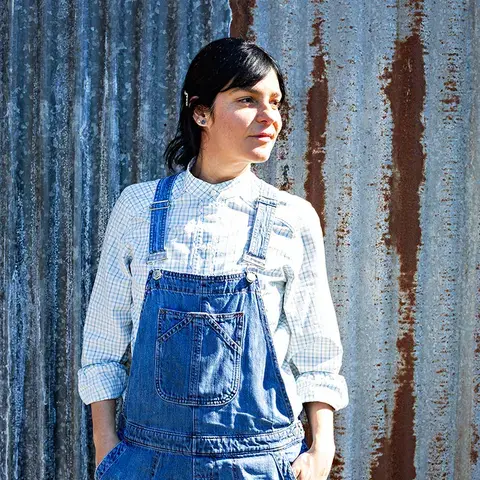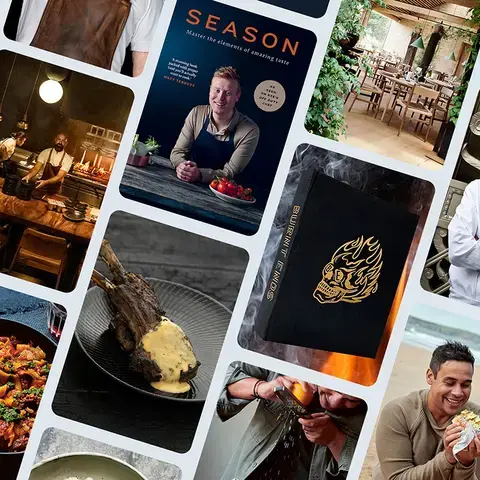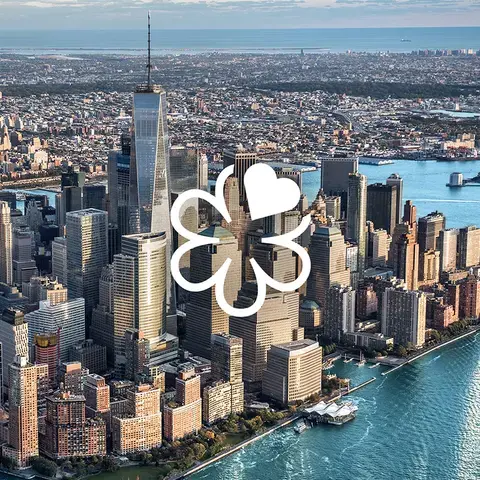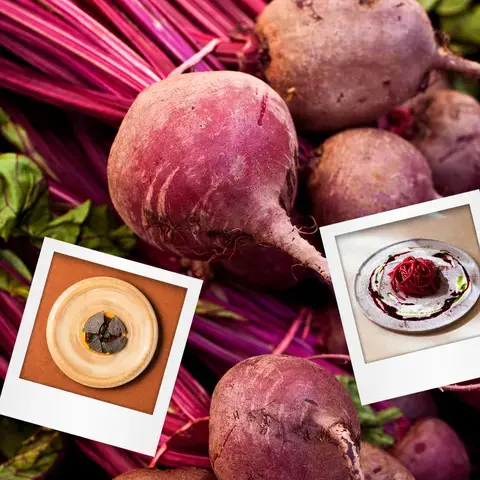After eight months of lockdown, Copenhagen’s most creative restaurant, Alchemist, opens its doors today. It is reimagined as Alchemist Reloaded, with an introspective live music performance, a surreal pink disco experience and edible impressions that include ant-cheese, pig’s blood and raw jellyfish.
During the first lockdown, Danish chef provocateur Rasmus Munk trained his attention on the essence of what he does best – feeding people – and put his energy into feeding Copenhagen’s homeless with his non-profit JunkFood.
When the second period of lockdown came along it allowed Munk the time and space to reflect, to get in the lab and develop new dishes or ‘impressions’ that feature in the new Alchemist menu. The restaurant is redesigned with a new visual element for the dome and two new experiential elements – a solo violinist performance in collaboration with the symphony orchestra, Copenhagen Phil. Three violinists rotate in taking on the part of 'Lulu' every evening, performing a 19th-century emigrant song in a dramatic, dark setting for arriving parties of guests at the very start of the evening.
The second installation is a bright pink room with tacky decorations in every possible shade of the colour. The concept is an expression of the tension between complying with authoritative social rules and a longing to let loose.
Fine Dining Lovers spoke exclusively with Munk about his self-reflective time in lockdown, what’s new for Alchemist and the future of fine dining.
Can you tell us about your experience over the last year?
We have had two major lockdowns in Denmark, three months at the start of 2020 and now five months December-April. During the first lockdown, I focused a lot of effort on building up the charity JunkFood, cooking for the homeless in Copenhagen, and I am very happy that it’s still going strong. During the second lockdown, I have had more time to focus on all the research projects we have started up during the first year of opening. One ongoing project is a collaboration with MIT and NASA on designing future space food, we also have PhD-students exploring luminescent algae, shape-changing food through 3D-printing, ancient fermentation techniques and the flavour kokumi.
How has Alchemist changed?
Physically we have totally remodelled two of our experience rooms. The former New York-graffiti room painted by Lady AIKO is now a musical installation, 'Lulu', where a solo violinist performs a solo concert for each party of guests. A live music performance adds a deep, emotional aspect to the experience at Alchemist. The piece in itself, a 19th century emigrant song, and the intensity of the performance conveys a sense of longing and introspect that I didn’t think was possible in just three minutes.
The other installation is a completely pink room, involving a performer, a disco ball and a dessert. We are trying to keep the rest a bit of a secret not to spoil it for future guests. Work in the development kitchen has also been explosive during this second lockdown. We have been able to dive deep into researching several subjects like hunger, child labour and social media surveillance. All of these themes will be on the menu during this first period of opening, accompanied by a whole range of new 360-universes in our planetarium dome created by our Visual Effects team.
What would you consider your main learnings from the last year?
To lock down a restaurant that took two years to build and an around-the-clock effort for me personally was painful, but it also led to new insights. We were already planning to evolve our two art installation rooms into something new when the lockdown hit, and the whole situation with Covid came to influence a lot of our choices. The experience of detachment, isolation and longing, as well as suddenly having time for reflection, formed the basis for the room 'Lulu', and the struggle between authoritative orders and the urge to break free was the inspiration for the pink room.
Looking back, I think the first lockdown and cooking for the homeless grounded me. I needed to be reminded of why I started Alchemist. Exploring holistic cuisine was a way for me to search for meaning and to start a conversation though food.
Can you describe your inspiration for the new menu?
We have a long list of dishes that are going on the menu in portions during these first three months of opening. These first five dishes are centred around diverse subjects like social monitoring, invasive species, blood donation, mycelium networks, and lastly our ant dessert that involves a very special technique. I don’t know if we are the first in the world to coagulate milk with the help of ants, but it was a revelation to me. We suspect that it is the formic acid in the ants that curdles the milk, and turns it into a kind of fresh cheese. The cheese is the base of our ant ice cream, which we use in an ant-shaped ice cream sandwich.
You always use your cuisine as a medium for social commentary. What are you saying with this menu?
Our main theme in working on the new incarnation of Alchemist has been 'Emotions'. The menu won’t change totally but gradually, and the whole experience is sprinkled with several messages. I believe in exposing to different kinds of stimuli, some artistic, some gastronomical and some commenting on social issues. And different guests take different impressions with them home from the experience depending on their backgrounds and cultural heritage.
Your food at the intersection of gastronomy and art - have these two worlds moved closer together over the last year?
For me personally, incorporating a live music performance is a milestone on the way to creating a truly holistic experience. In the 17th century, music was merged with theatre to create a whole new art form: opera. With this update of the Alchemist universe, I feel that we have come one step closer to one of my main goals: to find a new way of integrating gastronomy and art. Hospitality and the performing arts are also two of the industries that have been hit hardest by the pandemic, we are both dependant on being able to connect with people physically, and I think many, many people have felt a great loss in not being able to go to restaurants, concerts, art galleries, museums and theatres during the last year. In that sense, we are all in the same boat, and it makes more sense than ever to combine these worlds.
How have things changed for restaurants both locally and globally?
I think that the consequences of the pandemic will be felt in the restaurant industry for several years to come. Some of the ground we have won has been lost, and like most businesses created out of passion, the margins are low. This means that many forward-thinking restaurants will have to close their doors. I can only hope that governments around the world will realise the importance and impact of gastronomy and the importance of helping and supporting the restaurant industry in these difficult times. Food is an integral part of human life and development, and we need to start equating gastronomy with other cultural expressions like the performing and visual arts.

















